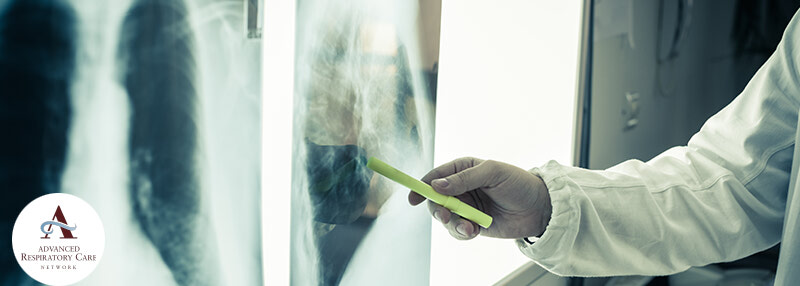Respiratory injuries can compromise your lung function and have a lasting impact on your health, possibly even leading to chronic respiratory conditions. The worst part? They can happen suddenly and without warning if you’re not careful!
Here at Advanced Respiratory Care Network, we’re dedicated to helping you protect your lung health and breathe easier no matter where you are, whether that’s at home, at work, or anywhere in-between! With that in mind, we’ve put together five tips to help you prevent respiratory injuries and keep your lungs healthy and strong.
1. Know the Common Causes
The first step in preventing respiratory injuries is understanding what it is that puts your lungs at risk in the first place. Some of the most common causes of injury include:
- Smoke inhalation from fires, cigarettes, or poorly ventilated stoves or fireplaces
- Chemical exposure from cleaning agents, pesticides, or industrial fumes
- Blunt-force trauma to the chest after an accident or a fall
Being aware of these causes allows you to take steps to mitigate your risk and exposure. Unfortunately, risk mitigation can be more difficult if you work in a profession where exposure to these risks is inherent in the job description, such as construction, firefighting, or some manufacturing positions.
2. Protect Your Lungs at Work
Speaking of occupational hazards, your workplace can be a major source of respiratory hazards. If that is the case, there are a few things you can do to reduce your risk, such as:
- Using proper respiratory protection like an N95 mask or a respirator – especially if you’re working in dusty environments or ones that are chemical-heavy.
- Always ensure proper ventilation of enclosed workspaces – whether that be working in the kitchen, remodeling or repainting a bathroom, or on the job site.
- Always follow all safety protocols and wear your personal protective equipment whenever required.
Employers are required by law to provide their employees with a safe working environment. Never be afraid to advocate for your health and to report any unsafe conditions to your supervisor or a safety officer.
3. Keep Your Home Air Clean and Safe
Work hazards are a primary concern when it comes to your lung health, but that doesn’t mean you should ignore or downplay hazards that could be lurking in your own home. Your home should be your sanctuary for your lungs! Here are some steps you can take to make it that way:
- Make sure every room in your home has properly installed and functioning smoke detectors.
- Avoid smoking in the home and limit your exposure to second-hand smoke.
- Avoid cleaning products with harsh chemicals and, wherever possible, use natural cleaning product alternatives.
- Consider adding an air purifier to your home to reduce allergens and pollutants and be sure to change your HVAC filters regularly to further reduce them.
4. Get a Pulmonary Function Test Done
One of the best tools we have in the fight against lasting respiratory damage is early detection in the form of Pulmonary Function Tests (PFTs). These tests are non-invasive and measure how well your lungs are working to help identify:
- Early signs of chronic conditions like COPD (chronic obstructive pulmonary disease) or asthma
- Lung damage from exposure to smoke or chemicals
- Decreased lung capacity due to illness or trauma
If you have any reason to believe you may have suffered a respiratory injury, don’t wait until the problem gets worse. Contact the team at Advanced Respiratory Care Network today for a comprehensive PFT to help you stay ahead of any potential issues.
5. Seek Medical Help After a Respiratory Incident
Any delays in treatment after a respiratory incident can have drastic long-term effects on your lung health. If you’ve experienced an incident such as smoke inhalation, chest trauma, or exposure to harsh chemicals or toxic fumes, here are some symptoms to watch for:
- Shortness of breath
- Persistent coughing
- Chest pain
- Tightness in your chest
- Wheezing or hoarseness
- Confusion or dizziness
Calling a medical professional immediately after an incident can help you prevent complications and ensure you receive proper treatment.
Take Charge of Your Lung Health
Your respiratory health is one of the most important aspects of healthy living and should be protected as much as possible. The team at Advanced Respiratory Care Network is here to provide you with early screening services, pulmonary diagnostics, and personalized respiratory care – whether you’re recovering from an injury or simply looking to prevent one.
Contact our team today to take the first step towards a healthier future by booking a consultation. Our team is here to support you on your journey to better breathing.

